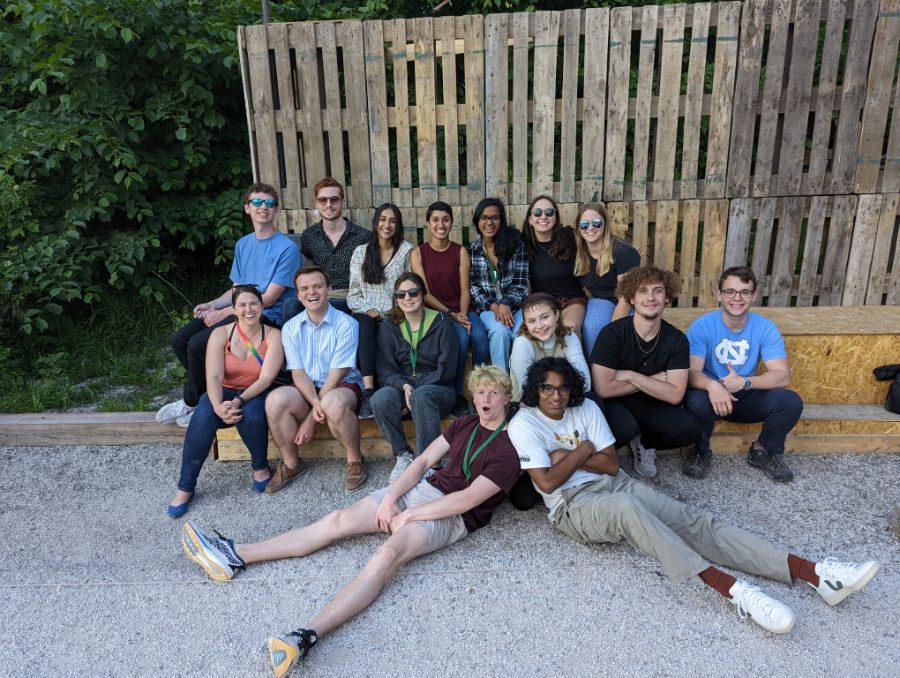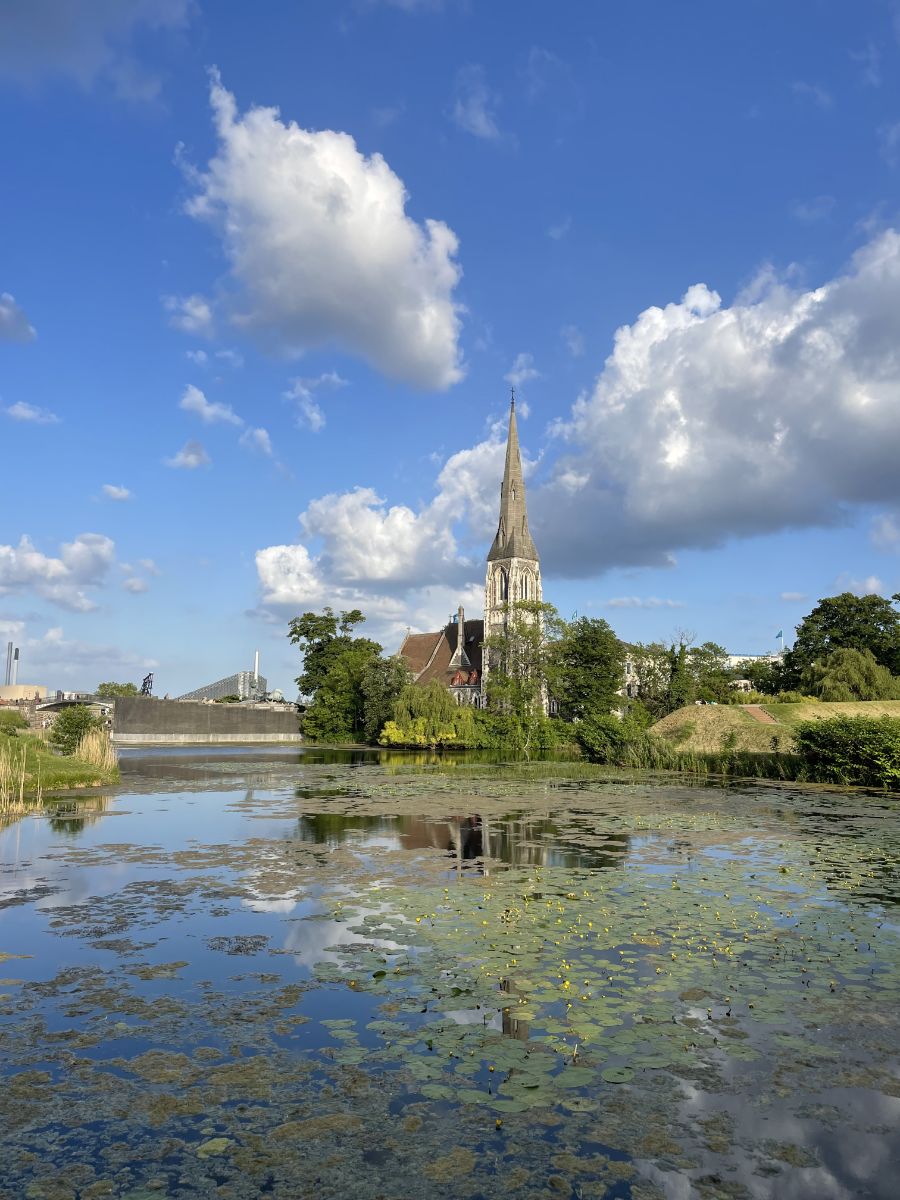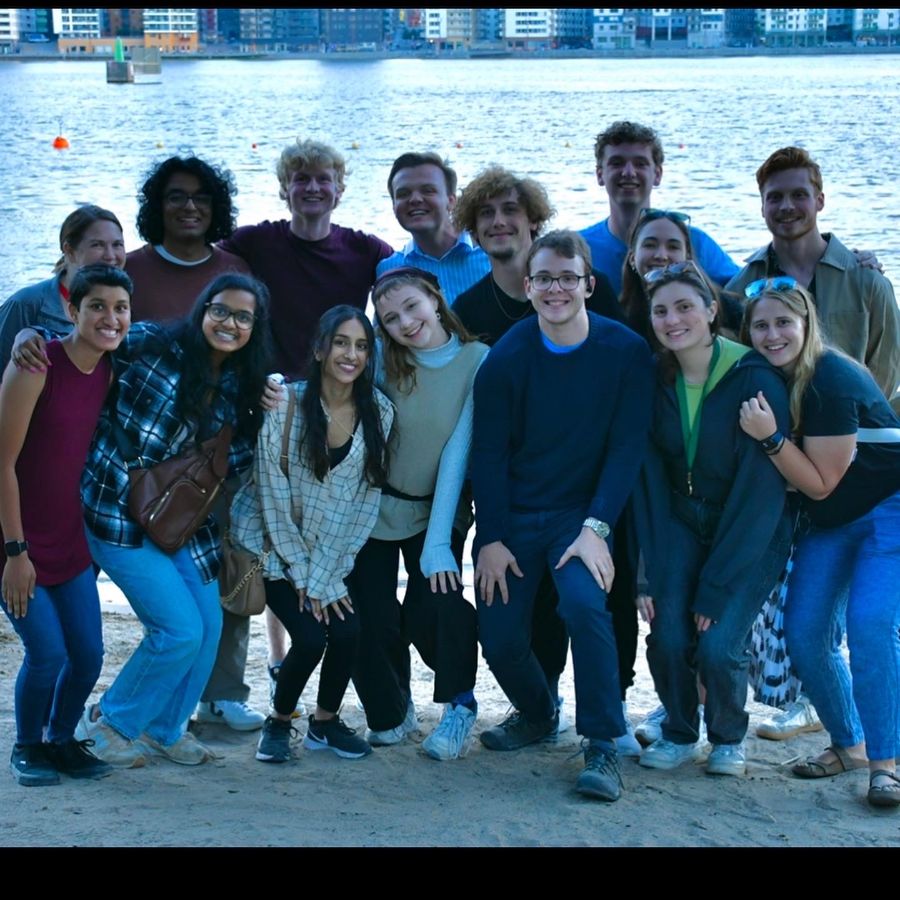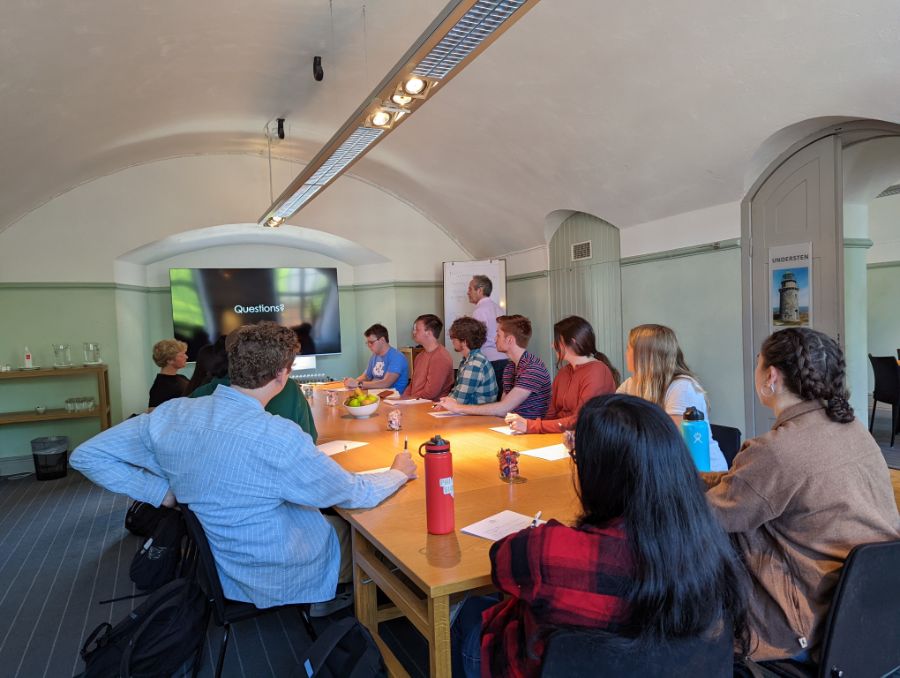Ainslee Conrad
About My Study Abroad Program
Major/Minor: Economics and Political Science Major with a minor in Philosophy, Politics, and Economics
Program: Danish Institute for Study Abroad (DIS) in Scandinavia
Location: Stockholm, Sweden; Copenhagen, Denmark; Munich, Germany
Email: ainsleec@email.unc.edu
Term: Summer 2022
Why did you choose to study abroad and how did you select your program?
This program being faculty-led by a UNC professor stuck out to me right away because I felt it would be a nice transition into studying and living abroad to have a group of people and a professor all coming from the same school originally, even though we did not know each other at all. I also enjoyed the fact that it would not only allow me to make connections with students across the country, but also allow me to make more connections and relationships with people at UNC, given how large our school is. Overall, it came down to the fact that this program gave me the best opportunity to study multiple topics of interest to me at depths that would otherwise be unattainable.
What did you learn about yourself?
Although this answer will seem entirely cliche, this experience was the first time I learned that it was really okay to be myself. Going abroad with people whom you have just met can force you to camouflage yourself to fit this new group of people, because it seems like the alternative is to struggle to make friends. But for the first time in my life I felt like the opposite was true. When we first stepped outside the airport in Stockholm it hit me that I was in a new country with new people and I could have a new start to be completely myself and not have to worry about fitting a specific mold.
What is one of your favorite memories from your program?
This is by far the hardest question to answer, everything about my program and the people I was with was incredible. However, I would have to say that our farewell dinner in Stockholm is my favorite night to look back on. Even though some of us would be going on to Copenhagen together and we would all reconvene in the fall since this class was entirely UNC students, that night marked the end of what felt like an era. It was unimaginable to see how far we had come as a group considering exactly three weeks prior we were sitting at our welcome dinner. We were beyond fortunate that our last dinner was at a restuarant where you played a Swedish bocce ball like game before we sat down and ate, because it gave us one last chance to do a group activity where we could all be ourselves.
What advice do you have for future study abroad students?
Most uncertanties that students will face when studying and travelling abroad stem from the feeling that they feel alone, which is always an uneasy feeling, but the feeling is multiplied when in a foreign country. However, even students that feel alone are not the only ones feeling alone. My biggest advice for this scenario is to go and do. Go out and explore whether it is an adventure with a classmate or walking down the street by themself to grab a cup of coffee. The opportunity to study abroad is unlike any other in so many positive ways, but can seem negative in that there are all of these new uncertanties that you are forced to deal with in unfamiliar territories. When these uncertanties first started to come about during my trip, I worked to get over them by finding an activity that I enjoyed doing at home that I could also do in Stockholm, which was going for a walk to find a nice view, this allowed me to bridge the gap between old and new while working to make new friends.
How do you identify?
Student with a disability
Could you share any experiences where your identity played a role in your time abroad?
I was walking around downtown Stockholm with two of my friends one afternoon when my blood sugar unexpectedly dropped and I began exhibiting severe hypoglycemic symptoms. Fortunately, I had forced myself to talk to those same friends a few days prior about my condition and what to do if something were to happen. This was not an easy thing for me to do because I generally like to be an independent when it comes to my condition and do not want my friends to worry or think they have to walk on eggshells around me at times. However, had I not had this conversation, the situation could have became much more dire than it needed to be, because they were effectively able to help me get my blood sugar up and back into a coherent and safe state.
Is there any advice you would give to other students who share your identity?
If you have diabetes or any other chronic medical condition, do not be afraid to talk about it. It can be difficult to force yourself to have the hard conversations, but part of the reason they are so hard is because they are so important. At the end of the day, the most important thing is your safety, and informing your friends about your condition and what to do if a problem arises will make you feel much more comfortable throughout your journey and can even save your life.
If you faced any challenges abroad, where could you turn to get the support you needed?
The DIS program that I was apart of had access to 24/7 health support whether mental or physical that was easy to reach out to incase of an emergency or even when faced with a difficulty as a result of my condition.
Memories




